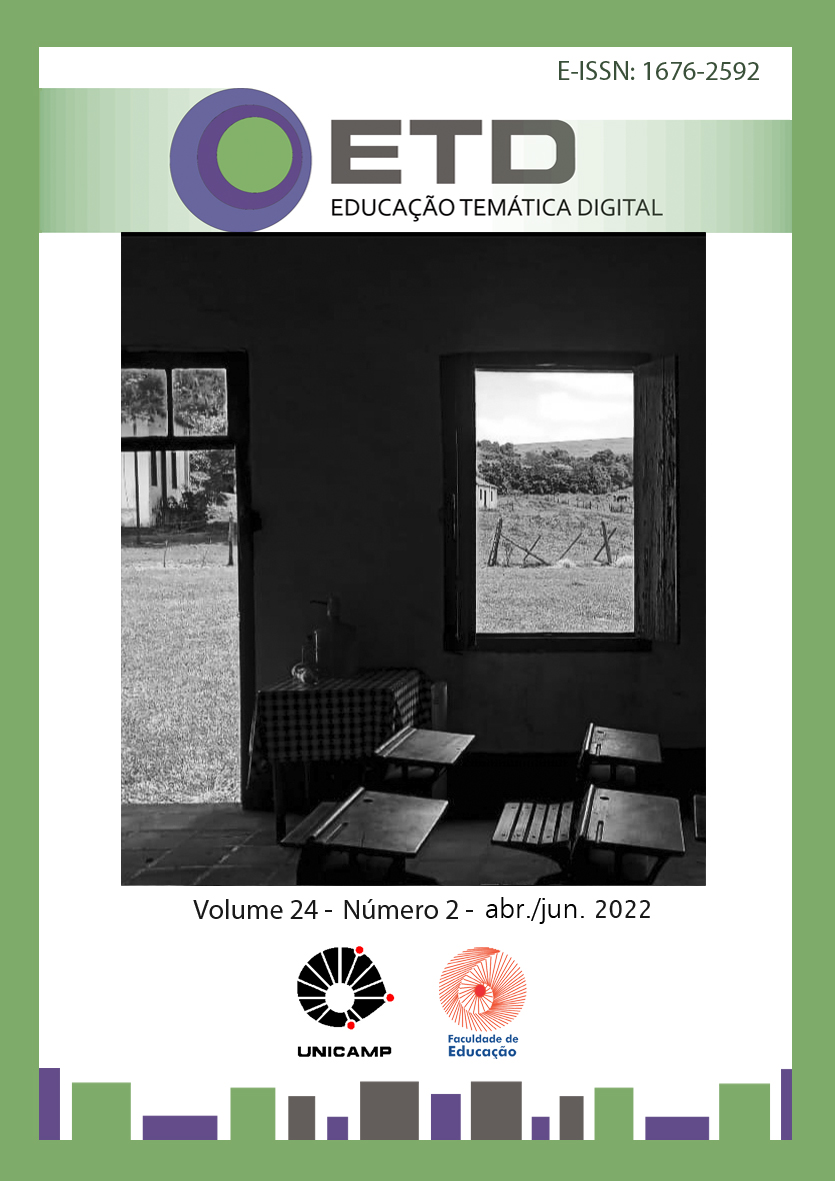Abstract
The article focuses on Nietzsche's philosophy of antagonisms to seek its formative repercussions considering art, science and education. The agonistic model present in Nietzsche's work is taken as the defining factor for assessing the subtleties of philosophical clashes, especially the dispute with Socrates. In the dispute dynamics, the power of praise, criticism and also self-criticism. This philosophical soil connects with the pedagogical soil, giving rise to methods of analysis and practice that configure a possible agonic education. In these terms, the educational dispute rescues vitality through the genealogical method that aims to discuss invention, discovery, explanation and interpretation considering the arrangement of concepts to contest their ontological immutability and generate new guidance in epistemological terms. Be willing to think with Nietzsche, without necessarily abandoning Socrates, would imply reflecting on how the excess of fixity brought about by our pedagogical inventions has prevented more robust discoveries to make another education happen. It will be necessary, before all, to question the value of the truth that still reigns among us in order to bring the Nietzschean project of transvaluing all values to its final consequences.
References
ACAMPORA, Christa Davis Acampora. As disputas de Nietzsche. Florianópolis: Editora da UFSC, 2018.
BARROS, Roberto de Almeida Pereira de. Perspectivismo e interpretação na filosofia nietzschiana. Cad. Nietzsche, Guarulhos/Porto Seguro, v.39, n.1, p. 54-92, jan./abr., 2018
FONSECA, Ana Carolina da Costa. Os dois sentidos da crítica Nietzschiana: Sócrates como um caso exemplar. Veritas, v. 57, n. 1, jan./abr. 2012, p. 41-51.
FREZZATTI JÚNIOR, Wilson Antonio. O Sócrates de O Nascimento da Tragédia: o início e a transmutação da cultura teórica. ELEUYTHERíA Campo Grande, MS, v. 2, n. 2, p. 114-124 jun./nov. 2017.
HEIT, Helmut. Perspectivas naturalizantes de Nietzsche em Além do Bem e do Mal. Dossiê Naturalismo, Dissertatio, v.supl.2, UFPel, 2015.
MACHADO, Roberto. Nietzsche e a verdade. São Paulo: Paz e Terra, 1999.
NIETZSCHE, Friedrich Wilhelm. A Gaia Ciência. São Paulo: Companhia das Letras, 2001.
NIETZSCHE, Friedrich Wilhelm. Genealogia da moral. Petrópolis, RJ: Vozes, 2009.
NIETZSCHE, Friedrich Wilhelm. Crepúsculo dos ídolos ou como se filosofa com o martelo. Petrópolis, RJ: Vozes, 2014.
NIETZSCHE, Friedrich Wilhelm. Zaratustra. Rio de Janeiro: Civilização Brasileira, 1998.
NIETZSCHE, Friedrich Wilhelm. Além do bem e do Mal: prelúdio a uma filosofia do futuro.Tradução, notas e posfácio Paulo César de Souza- São Paulo: Companhia das Letras, 1992.
SOUSA, Mauro Araujo. O perspectivismo de Nietzsche e a compreensão. Líbero, São Paulo, v. 19, n. 37-A, p. 109-116, jul./dez. de 2016.

This work is licensed under a Creative Commons Attribution-NonCommercial-NoDerivatives 4.0 International License.
Copyright (c) 2022 ETD - Educação Temática Digital


